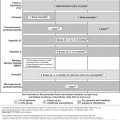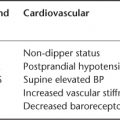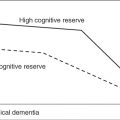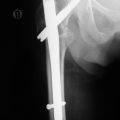Definitions
Abuse is an acknowledged deviance. According to the Council of Europe’s definition, ‘Abuse consists of all and any acts or omissions, which endanger one’s life, threatens bodily or psychological integrity or infringes one’s liberty or compromises personality development and/or seriously undermines financial security’.
As is well known, those who are vulnerable represent the usual target. Handicapped and dependent people and especially cognitive disorders represent vulnerable clinical situations.
The fight against abuse of the vulnerable elderly has become a social and ethical issue. On a semantic level, ‘good quality care’ is not the opposite of ‘abuse’. Good quality care is based on humanist values. It is an action which promotes quality care and prevents abuse, while developing human relations. It implies particular attention to people’s needs and takes professional practices into account.
With regard to the ill elderly, good quality care is expressed in two essential and complementary aspects: the quality of care and the quality of care giving. Quality of life is certainly the pursued objective.
Both at home and in a retirement home, good quality care implies several actions:
- Locate, evaluate and treat pain, which is not always easy when verbal expression is lacking.
- Diagnose depression while considering the risk of suicide.
- Maintain mobility, compensate for functional deficiencies.
- Prevent and treat malnutrition.
- End-of-life care and symptom relief.
- Provide, whatever the need, care quality and continuity, without abandoning technical aspects, while respecting the person’s choice.
In retirement homes, the prevalence of dependence, multipathology and, in particular, cognitive disorders is 50–80% of residents; which gives these actions their great importance.
A Reminder of the Main Ethical Principles
In a preventive approach, we should recall fundamental ethical principles that must guide geriatricians in their daily practice of caring for vulnerable people:
- Principle of humanity and dignity. Everyone, whatever their condition, situation and personal history, has the quality of being human and therefore belongs to a community of human beings. It is a universal and inalienable principle.
- Principle of solidarity. People belonging to the same human community are bound by a collective responsibility to grant mutual aid and help to those afflicted by the misfortunes of life.
- Principle of fairness and justice. This principle requires, for every person, the recognition and respect of their rights. Thus, age must not be a pretext to refuse access to diagnostic methods and/or to care, while appreciating, of course, the necessity to avoid relentless therapy.
- Principle of autonomy. This principle requires that each individual can freely rule their own life and make their own decisions concerning it.
Multidimensional Aspects of Abuse
Abuse expresses itself in various ways. The Council of Europe (1992) proposed the following classification. Abuse can be of various natures:
- Physical: blows, bodily cruelty, contention.
- Psychological: verbal violence, insults, familiarity, infantilization, threat of violence, deprivation of visits.
- Financial and material: theft or misappropriation of money, coerced signed cheques, anticipated inheritance.
- Medical: deprivation of medicine and care, lack of basic care, inappropriate care, no treatment information, neuroleptic abuse, no pain relief, lack of care coordination, and so on.
- Infringement of people’s rights, their identity, their liberty to come and go, deprivation of the exercise of civic rights and the right to choose, religious practice, abusive use of legal protection.
However, it is necessary also to distinguish situations characterized by negligence:
- Active negligence corresponds to deprivation of indispensable daily care (eating, drinking, receiving visits, etc.), to defective aid leading to unacceptable hygiene, to abandonment, to putting the person in danger.
- Passive negligence results from forgetfulness: there is no intention to harm. It is a result of a lack of aid in getting up, putting to bed, grooming, dressing, walking, and so on. This attitude is a matter of ignorance and inattention to one’s duty. Thus in retirement homes, the staff may be negligent because of a lack of training, a shortage in the workforce or ill-adapted working conditions.
The reality in the field teaches us that situations are often intricate, associating medical, psychological, social and economic issues, creating a complex scenario whose analysis proves difficult.
What are the clinical signs which lead us to suspect abuse? The presence of bruises, repetitive unexplained traumatic lesions, pelvic pains or genital bleeding, muteness or agitation on the part of the elderly person in front of a family or professional carer, malnutrition, deficient hygiene, regular trips to the emergency room of a neighbouring hospital, must draw professionals’ attention. However, one needs to be careful of elderly people who say they are being abused but who, in fact, live in a delirium of persecution.
But Who Abuses?
Several situations involve some risk of progressing towards abuse. They must be known, in order to employ preventive measures, both at home and in care establishments. Thus, recent female widowhood, functional dependence, physical problems with urinary incontinence, psychological dependence and behavioural disorders (e.g. Alzheimer’s disease) represent factors linked directly to the elderly person.
In the private sphere, the aggressor may be one or more family members, a neighbour, a ‘friend’. They are often characterized by overt alcoholism, a difficult social and financial situation or a psychiatric illness. Ignorance of the illness, its non-acceptance, fear of dependence, exhaustion, isolation with a refusal of outside help, all aggravate the context.
The cohabitation of victim and aggressor in a small home facilitates abuse. In a care establishment, staff shortages, lack of trained teams, emotional exhaustion and professional attrition contribute to this failing. We therefore understand the importance of the establishment’s project and the managing team’s motivation, responsible for maintaining working conditions. However, ill-adapted premises and facilities and poorly used space present security risks for the residents and also represent a kind of abuse.
Conduct to Embrace
Preventing abuse situations must be a priority in caring for elderly vulnerable people. It is the role of public authorities, associations and professionals that work in the geriatric field. This prevention calls for information, training and organizing effective measures.
In cases of abuse, either established or suspected, the priority is to protect the victim, in addition to taking into account the person’s wishes. Often, hospitalization is the required solution, taking the person away from their presumed aggressor.
In other situations corresponding to suffering or exhaustion of care givers, it is necessary to break the isolation of the victim–aggressor couple, by the intervention of professionals at home, by temporary lodging, by protective legal measures, and so on.
French law stipulates that any qualified abuse offence must be brought to the judicial authority’s attention (state prosecutor). The physician is no longer bound by professional confidentiality. Confirming abuse is a matter for penal jurisdiction.
Article 434-3 of the Penal Code
Stay updated, free articles. Join our Telegram channel

Full access? Get Clinical Tree








